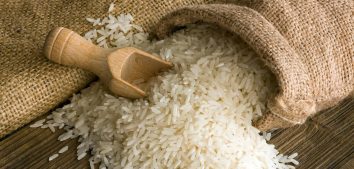
Late Night Snacking Affects Your Well-Being!
Have you ever woken up at night to look into the kitchen cupboards or the fridge? If the answer is yes, this post is just for you! What mechanisms drive such behaviors and what can be the consequences of late-night snacking? As it turns out, this seemingly innocent, larger or smaller evening snack can significantly affect your well-being, health, sleep quality, and even productivity at work the next day.
What is the night eating syndrome (NES)?
It is an eating disorder characterized by increased appetite in the evening and night, and anorexia in the morning. People with NES feel a strong need to eat at night. They are especially eager for sweets and high-calorie products. The next day, they usually skip breakfast, the remaining meals are irregular, often unbalanced in terms of both nutritional value and macronutrients. This easily leads to developing incorrect eating habits and metabolic complications.
What does not qualify as NES?
If you work out in the evening, work night shifts, and therefore eat your meals late or at night, you don’t suffer from night eating syndrome. Remember that both a post-workout meal and a night “lunch” at work allow us to regenerate and provide our body with the necessary nutrients at a given moment.
Where does NES come from?
Let’s start from the beginning! Why do you want to visit the kitchen at night in search of treats? There may be many reasons for this. If you work hard and feel burdened with a lot of stress, it is often in the evening that you will experience a state of discharge of tension. While a long shower and some good music are enough for some, others help themselves to food to calm their emotions. It is associated with something nice, safe and pleasant.
Do you eat irregular meals? Is your diet not properly balanced and do you feel hungry in the evening? Perhaps you go to bed late or have difficulty falling asleep and eating helps you fall asleep? As you may have guessed, there can be many more reasons, and the reasons are mainly psychological. If you have a similar problem and an interesting way to deal with it, share it in the comments below, and you may help someone find a solution
The consequences of NES
Regardless of the reason, the consequences of night snacking affect everyone. According to research conducted by scientists from the University of North Carolina, people who eat unhealthy food in the evening and at night more often than others reported malaise the next day: both mental, including guilt, and physical (e.g. headache, abdominal pain, or diarrhea). 97 working people were subjected to a 10-day observation period. Unhealthy eating at night was subjectively judged to be “unhealthy” by the participants themselves, and reportedly also had an impact on how they worked the next day. In the aftermath of the evening feast, they were often less helpful to co-workers and stayed away from others while at work.
What is the conclusion? Late-night snacking can cause lethargy, guilt, trouble concentrating and apathy the next day.
NES and sleep
Another study looked at how night eating would affect students at the University of Michigan. 413 people aged 20 to 22 were examined. As it turned out, the subjects who suffered from the problem of late-night snacking had shorter sleep times and worse sleep quality. You can read about the importance of sleep on the blog, for example HERE.
NES, depression and body weight
If the above information is not convincing for you, I have the results of another study. The relationship between night-time eating and depression was examined here. As many as 31,690 Korean adults (≥19 years old) were tested in the Korea National Health and Nutrition Examination Survey. It was found that men snack more often at night. Nevertheless, there is a greater correlation between eating at night and depression in women.
Finnish scientists obtained similar data. Interestingly, in their research, they showed not only the link between depression and night snacking, but also found that during the 7-year observation of people with depression and night snacking, there was an increase in the body mass index BMI and waist circumference, of which the greatest changes occurred in people sleeping 7 hours a day and less.
What are the conclusions?
So what is the result of the above data? Men eat more often at night, but for different reasons than women. Ladies mostly drown out difficult and negative emotions. We’ve all seen movies where a woman takes out a box of ice cream at night and comforts herself after a breakup or a difficult day at work. As it turns out, this is not only the creative fiction of the directors. Other effects of late-night snacking can also include an increase in body weight and sleep disturbances, and this is a simple way to feel worse, which winds up the spiral of eating for comfort.
How to deal with late-night snacking?
- Plan your menu and have regular meals! Try to plan your meals according to your daily schedule. Plan your breaks at work, time for shopping and cooking.
- Don’t hurry! We all know that time is money but eating in a hurry means worse digestion and less pleasure, and thus a lower feeling of fullness, a greater risk of unpleasant gastrointestinal symptoms (heartburn, flatulence, stomach aches) and a worse mood.
- Don’t stock up on food! Do not stockpile sweet and salty snacks or low-quality products that you can eat during a nighttime emergency
- Remember to stay hydrated throughout the day! Try to include water, herbal and fruit infusions in your daily menu. Remember that heat and physical activity increase the need for fluids!
- Eat a light and filling dinner2-3 h before sleep, and if you feel hungry and therefore cannot fall asleep, drink a glass of lukewarm lemon balm or warm plant milk, which will soothe the feeling of hunger.
- The barrage of thoughts in your head, stress, irritation and even anger keep you awake? Replace food with a book, music, walk, bath or short meditation. If you have a problem with relaxing, go to the Balance tab in the Diet & Training by Ann app and it will guide you to calm down!
- Do you work out in the evening? Prepare a nutritious and balanced post-workout meal. You can find more information about it HERE.
- Night shifts? We know how to deal with it! Prepare light meals based on vegetables with the addition of fish or poultry and groats, sweet potatoes or potatoes. Do you need recipes? You will find them HERE. Enter ‘lunchbox’ in the search field and you will find a large dose of inspiration.
Summary
Nighttime snacking has a negative impact on many aspects of our everyday life. Starting with a worse mood, sleep problems, impaired concentration, withdrawal, weight gain, depressive state, and even depression. Can we help it? The first step is to find the cause, and the next step is to replace bad habits with correct behaviors. By taking small steps, you will reach your goal. If you have suffered from the problem for years, do not hesitate to consult a doctor or a psychologist. Try my tips! I believe that with good motivation and a plan you can achieve success!
Bibliography:
- Cho S, Kim S. Does a healthy lifestyle matter? A daily diary study of unhealthy eating at home and behavioral outcomes at work. Journal of Applied Psychology. 2021
- Konttinen H, Van Strien T, Männistö S i wsp. Depression, emotional eating and long-term weight changes: a population-based prospective study. International Journal of Behavioral Nutrition and Physical Activity. 2019; 20,16(1):28
- Kyung Won L, Dayeon S. Association of Night Eating with Depression and Depressive Symptoms in Korean Women. Int. J. Environ. Res. Public Health 2019. 16(23):4831
- Yahia N., Brown C., Potter S. Night eating syndrome and its association with weight status, physical activity, eating habits, smoking status, and sleep patterns among college students. Eating and Weight Disorders – Studies on Anorexia, Bulimia and Obesity. 2017; 22(3):421-433









Comments No Comments
Join the discussion…